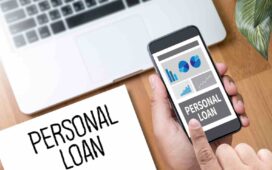Unsecured loans are a type of loan that does not require the borrower to provide any collateral. This means that the loan is not secured against any property or asset. While unsecured loans can provide access to funds without the need for collateral, they also come with certain pros and cons that should be considered before deciding if they are the right option for you.

Pros of Unsecured Loans
- No collateral required: Unsecured loans do not require any collateral, which means that you do not have to put any of your assets on the line to secure the loan. This can be particularly beneficial if you do not own any assets or do not want to risk losing any of your property.
- Quick access to funds: Unsecured loans can be processed quickly, which means that you can access the funds you need within a short period of time. This can be particularly important if you need to cover unexpected expenses or if you need the funds urgently.
- Flexibility: Unsecured loans can be used for a wide range of purposes, including consolidating debt, funding home improvements, or covering medical expenses. This means that you have greater flexibility when it comes to how you use the funds.
- No risk to assets: Because unsecured loans do not require collateral, you do not risk losing any of your assets if you are unable to repay the loan. This can provide peace of mind and reduce financial stress.
Cons of Unsecured Loans
- Higher interest rates: Unsecured loans typically come with higher interest rates than secured loans, as lenders view them as being higher risk. This means that you may end up paying more in interest over the life of the loan.
- Shorter repayment terms: Unsecured loans often have shorter repayment terms than secured loans. This means that you may have to make higher monthly payments to repay the loan within the required timeframe.
- Stricter eligibility requirements: Because unsecured loans are higher risk for lenders, they often have stricter eligibility requirements. This means that it may be more difficult to qualify for an unsecured loan, particularly if you have a poor credit score.
- Potential for debt traps: Unsecured loans can be easy to obtain, which can lead to some borrowers taking on more debt than they can afford to repay. This can lead to a cycle of debt and financial stress.
It is important to carefully consider the pros and cons of unsecured loans before deciding if they are the right option for you. While they can provide quick access to funds without the need for collateral, they also come with higher interest rates and stricter eligibility requirements. Before applying for an unsecured loan, be sure to shop around and compare rates and terms from multiple lenders to ensure that you are getting the best deal possible.














